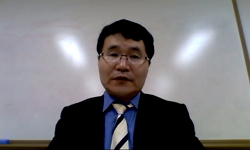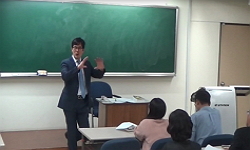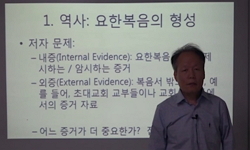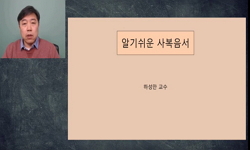고통과 악이 만연한 세상에서 선하고 전능한 신의 섭리는 당연하지 않다. 이는 섭리를 믿는 기독교 작가에게 어려운 숙제를 던진다. 이 세계를 현실감 있게 그리면서도 그 속에 작동하는 신...
http://chineseinput.net/에서 pinyin(병음)방식으로 중국어를 변환할 수 있습니다.
변환된 중국어를 복사하여 사용하시면 됩니다.
- 中文 을 입력하시려면 zhongwen을 입력하시고 space를누르시면됩니다.
- 北京 을 입력하시려면 beijing을 입력하시고 space를 누르시면 됩니다.

이야기로 그려내는 섭리와 자유 - 톨킨의 『반지의 제왕』 = Providence and Freedom in Story : Tolkien’s Lord of The Rings
한글로보기https://www.riss.kr/link?id=A109247659
- 저자
- 발행기관
- 학술지명
- 권호사항
-
발행연도
2024
-
작성언어
-
- 주제어
-
KDC
200
-
등재정보
KCI등재
-
자료형태
학술저널
- 발행기관 URL
-
수록면
101-133(33쪽)
- 제공처
-
0
상세조회 -
0
다운로드
부가정보
국문 초록 (Abstract)
고통과 악이 만연한 세상에서 선하고 전능한 신의 섭리는 당연하지 않다. 이는 섭리를 믿는 기독교 작가에게 어려운 숙제를 던진다. 이 세계를 현실감 있게 그리면서도 그 속에 작동하는 신의 섭리를 보여주어야 한다. 가톨릭 작가인 톨킨의 『반지의 제왕』이 좋은 사례다. 명시적 종교 이전의 사회이지만, 사실 『반지』 속에는 신의 섭리가 다양하고 뚜렷하게 나타난다. 섭리의 가장 흔한 모습은 ‘요행’이다. 톨킨은 요행처럼 보이는 상황을 그리며, 거기 작용하는 초월적 손길을 보여준다. 간달프 같은 예지적 존재는 이 섭리를 포착하고 전달한다. 『반지』 속 섭리는 절대적이고 최종적이다. 하지만 결정론적 숙명과 달리, 이 섭리는 개인의 자유를 훼손하는 폭력이 아니다. 오히려 섭리에 대한 인식은 각 주체에게 자유로운 숙고와 주체적 선택을 요구한다. 섭리는 선한 주체의 용기와 결단을 격려하거나 올바른 인식을 유도한다. 사태의 복잡함이나 악의 위력에 눌린 한계 상황에서 주체의 자유를 회복시켜, 진정 자유로운 선택이 가능하게 돕는다. 『반지』의 세계는 ‘자연신학’ 적이지만, 동시에 신의 섭리가 분명한 ‘일신론적 세계’다. 반면, 이런 설정의 한 불가피한 결과는 섭리의 승리가 악의 파멸에 머문다는 사실이다. 여기서 희생적 중재에 기반한 용서와 회복의 복음은 보이지 않는다. 바로 이 지점에서 그의 작품은 기독교적 색채가 뚜렷한 C. S. 루이스의 작품들과 뚜렷한 대조를 이룬다. 이는 역설적이다. 톨킨 역시 자기 작품이 “복음의 울림”이 되기를 기대했기 때문이다. 그런 점에서, 우리는 기독교적 색채를 지우려는 그의 문학적 신중함과 “복음의 울림”이라는 신앙적 희망 사이에 모종의 긴장을 느낄 수 있다.
다국어 초록 (Multilingual Abstract)
In a world like ours God’s providence cannot be taken for granted. For Christian writers this poses a double challenge of rendering the benevolent and omnipotent hand of God plausible where such a belief seems just impossible. The Lord of the Rings ...
In a world like ours God’s providence cannot be taken for granted. For Christian writers this poses a double challenge of rendering the benevolent and omnipotent hand of God plausible where such a belief seems just impossible. The Lord of the Rings by J. R. R. Tolkien, a devout Catholic writer, is one telling case in point. Despite the widespread opinion otherwise, the work is clearly “religious,” full of scenes where a transcendent hand is at work in a subtle yet unmistakable ways. Characters often experience an unexpected “luck,” which turns out to be the sign of “another will” working behind the scene. Providence in LOTR is all-powerful and absolute. Yet, unlike the deterministic Fate, it never impinges upon individual freedom. On the contrary, it often shows itself as a compelling demand to acknowledge one’s freedom and act upon it accordingly. It instills courage necessary to make the inevitable decision and provides insight into the complexity of moral situation. It even combats with evil powers to free one from oppressive influences, so as for one to make decisions as a free individual. The LOTR is clearly a world of ‘natural theology’ but also that of unmistakable “monotheism.” This creates an interesting tension in the work: the victory of Providence mostly means ‘destruction’ of evil, with no room for a distinctly “Christian” drama of forgiveness and restoration. In this respect, Tolkien makes a good contrast with C. S. Lewis, whose literary works are manifestly Christian, even to the point of being allegorical. This is an irony, especially since Tolkien too wanted his “fairy-stories” to be an “echo” of Christian Gospel. In this limited sense, we can ask if his decision to make the Middle Earth “before religion” is altogether a felicitous one.
동일학술지(권/호) 다른 논문
-
- 21세기기독교사회문화아카데미
- 김경래 ( Kim Kyungrae )
- 2024
- KCI등재
-
한국적 공공 신학에 관한 연구 : 민중 신학에서 공공 신학으로
- 21세기기독교사회문화아카데미
- 김승환 ( Kim Seung-hwan )
- 2024
- KCI등재
-
- 21세기기독교사회문화아카데미
- 강아람 ( Kang Ahram )
- 2024
- KCI등재
-
- 21세기기독교사회문화아카데미
- 조은실 ( Cho Eun Sil )
- 2024
- KCI등재




 KISS
KISS






